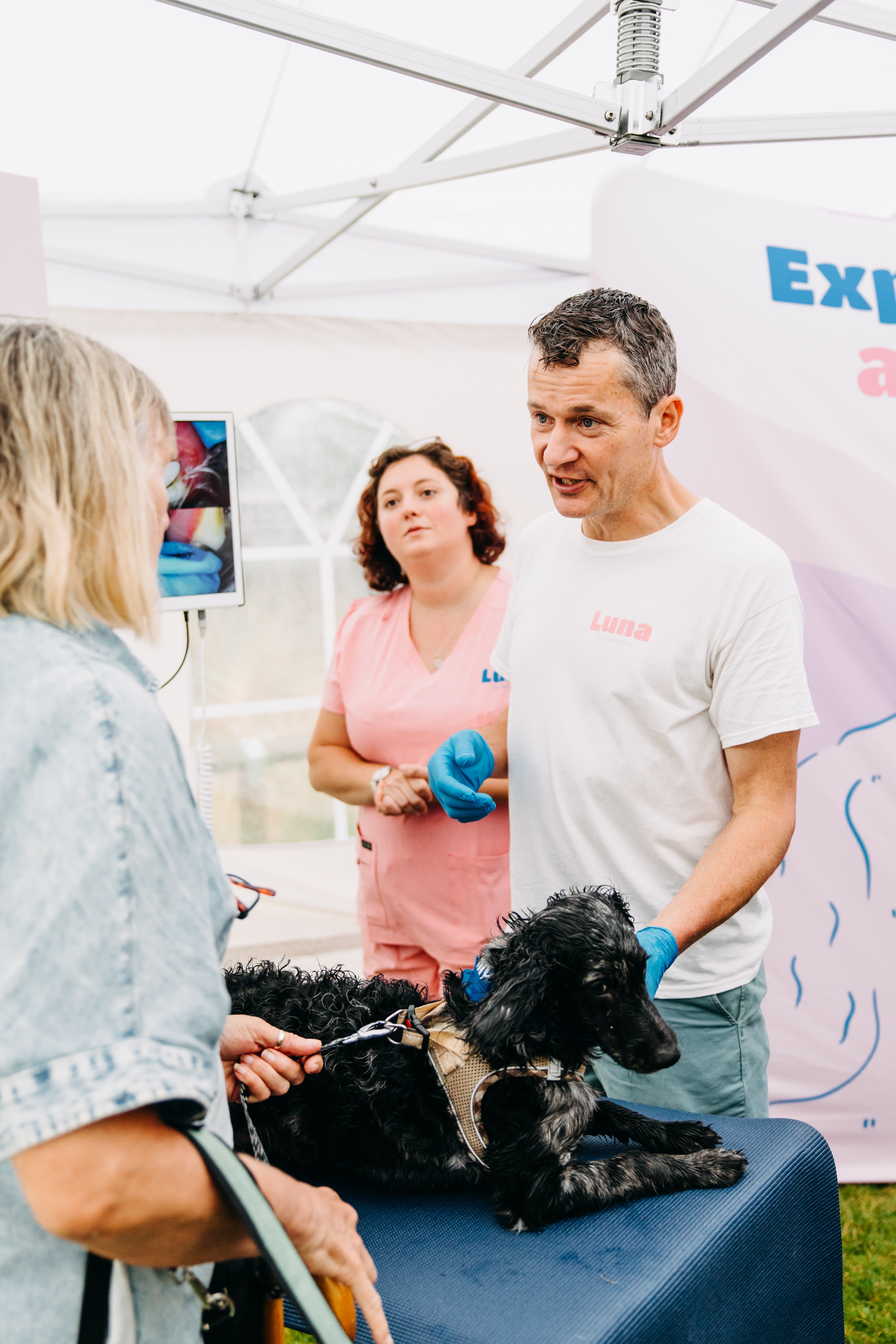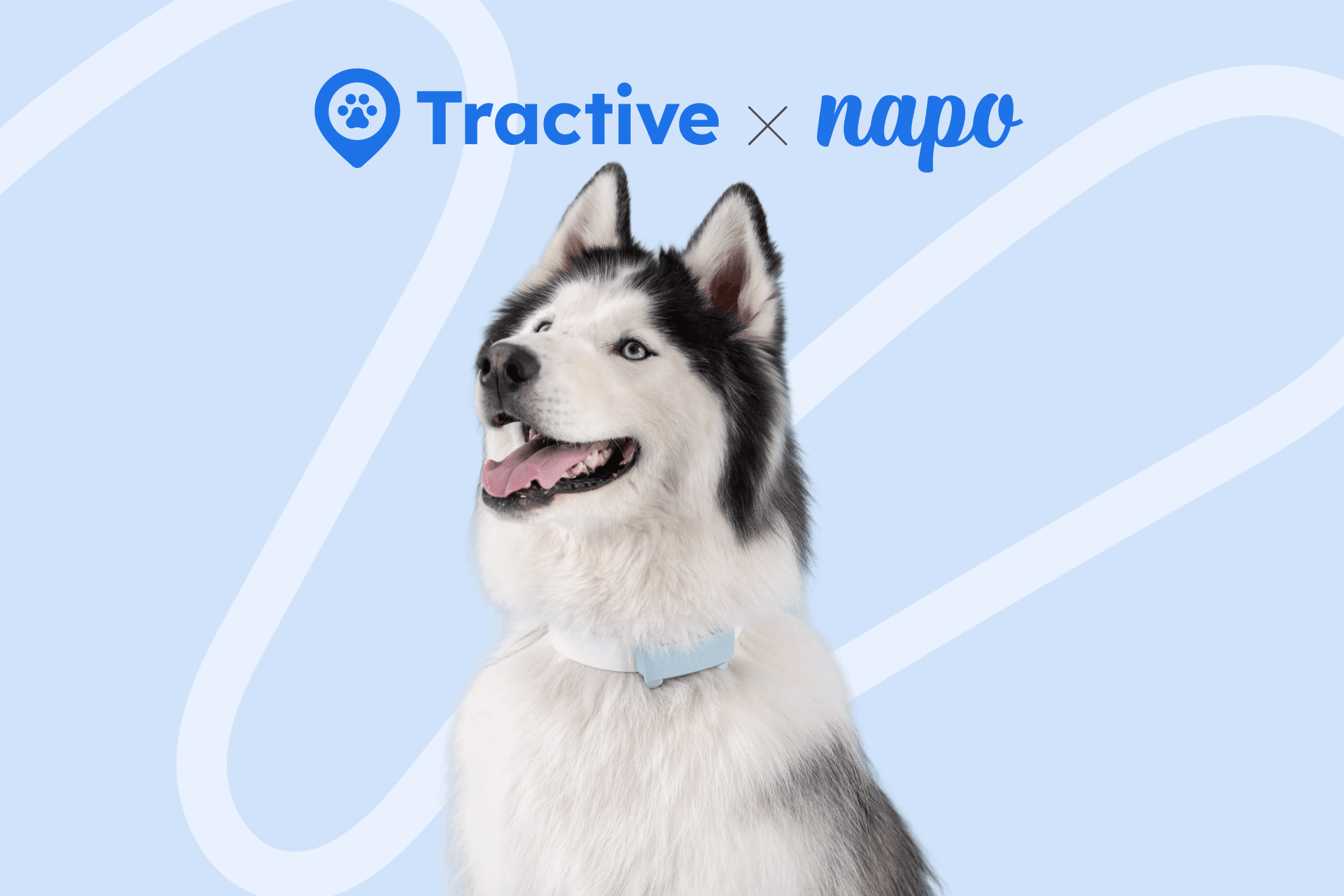How to stop puppy biting and train your puppy not to bite

Summary
Biting is a normal behaviour for puppies, but frustrating to deal with. (Those teeth are sharp!) You can train your puppy not to bite using redirection and positive reinforcement. Whenever your puppy tries to nip or chew you or your clothes, redirect them to a toy. Praise them whenever they chew the toy. It’ll teach them what they're meant to chew, and they'll learn to choose their toys when they want to gnaw something.
Are you struggling with your adorable furball's tiny, but super sharp, teeth? We've all been there, it’s like living with a little shark. Thankfully, you can stop puppy biting with some simple training. In this guide we’ll give you the lowdown on why your puppy is biting, and practical tips on how to stop puppy biting.
How to stop puppy biting
You’ll need to do some training to stop puppy biitng and nipping. This helps to set your puppy’s expectations around biting, and teaches them what’s right to bite, and what’s not.
How to train a puppy not to bite
-
Gentle redirection.When your puppy starts to bite, immediately redirect their attention to a suitable chew toy. Encourage them to bite and chew on that instead. Praise and reward them when they chew the toy. This teaches them what’s appropriate to chew on, and helps redirect their natural biting instincts.
-
Consistency and positive reinforcement.Be consistent in your training approach. Reward your puppy with praise, treats, or playtime when they refrain from biting or bite and chew their toys. This helps to reinforce the behaviour you’d like them to do, rather than nipping at you.
-
Don’t punish them.Avoid any form of physical punishment, as it can create anxiety in your puppy and make the problem worse.
-
Seek professional help if needed.If you're feeling overwhelmed or would like some extra help, consider speaking to an accredited dog trainer or going to puppy classes. If you’re a Napo customer, there’s a free Puppy Academy class on this topic, so you can get tailored advice to help you out.
How to stop puppy biting feet
One way to stop your puppy biting feet is to stop, stand still, and redirect. Nipping at feet is relatively common and often caused by movement. This is especially true for herding dogs known as "heelers", like Pembroke Welsh Corgis. They're called "heelers" nickname because were bred to herd by nipping at cow ankles. So if your pup nips at ankles and feet, stop moving and stand still. As soon as your pup moves away, reward them. You can even reward them by scattering the food away from your feet, to help put distance between those tiny teeth and your ankles.
How to stop a puppy from biting your hands
Puppy’s will often bite our hands because when they’re small, we tend to use our hands to play with them. We also use our hands to stroke them, feed them, and teach tricks, so they’re super exciting for your pup! While this is fun and cute when they’re little, it means your pup learns that mouthing at your hands and nipping at them is a game. They don’t think they’re doing anything wrong, because it was acceptable when they were small, and now we humans have decided we don’t like them doing it anymore.
Just like before, the key here is to teach your dog what they can bite and play with. When you’re playing interactive games like tug, use a suitable toy. Long toys are especially good to put some distance between those teeth and your hands. And if they’re nipping at your hands, redirect them to their toys and praise them if they bite those instead.
Again, if they won’t stop biting or switch to chewing a toy, just move out of their way for a while and ignore them until they stop, or do a behaviour you want to encourage. Then give them attention, praise, and maybe some more playtime.
How to stop puppy biting fast
While nipping and mouthing can be frustrating, there is no quick fix to stop puppy biting fast. Besides, a quick fix won’t address the cause of the problem, or teach your dog what is appropriate instead, so won’t resolve the issue. Instead, focus on consistent training. You might even be surprised at how quickly your pup picks it up!

Why do puppies bite?
There are a few reasons why puppies bite. Firstly, they're teething, so chewing helps soothe their gums. Secondly, they learn social skills by nipping during playtime with their littermates. Lastly, puppies have lots of energy and biting is a normal part of how they play.
Why does my puppy keep biting me?
As mentioned above, a key reason why puppies bite is to play. Often when our puppies are small, we will play with them using our hands so they learn to think it’s acceptable to nip at our hands, because it’s a game. Then suddenly they get bigger, and we humans don’t want them biting our hands, so we want them to stop. But this can cause frustration for our pups because up to now, it’s been okay!
Additionally, our pups will often bite us or our clothes to get our attention. Because when they were small, they’d come over and bite our sleeves, etc, and we would then talk to them, either to give them a fuss or to take whatever it is out their mouth. In a dog’s world, there’s not much difference between the two, because they both get your attention. It becomes a “self-reinforcing” behaviour, where the puppies learns biting you or your clothes = attention from you.
Why is my puppy biting me aggressively?
It’s very uncommon for a young puppy to be biting aggressively. However, your pup might be frustrated because their expectations are not being met. For instance, if they have learned that biting your clothes = attention, and you suddenly start ignoring them or telling them no, they can become frustrated because they expectation is not being met and so will escalate the behaviour. That’s why it’s so important to change your dog’s expectations when training, so they learn what you will do in response to a certain behaviour.
When does a puppy stop biting?
Puppy biting stops when they learn that nipping and mouthing inappropriate things won’t be rewarding, but biting and chewing the right toys is rewarding. But, puppies and dogs explore the world with their mouths, so they’ll continue to test new things with their mouths.
Do puppies grow out of biting?
Puppy biting and chewing can get worse when your puppy is teething. Teething takes place usually from around 3 to 6 months, as your puppy’s adult teeth grow in. However, a puppy will not grow out of biting just because they stop teething, or reach a certain age. Biting and chewing are normal behaviours for dogs, and healthy chewing is important for their mental and physical wellbeing. Only training your puppy what is acceptable to bite and chew through positive reinforcement will get them to stop biting.
Conclusion
It’s natural and normal for puppies to bite and chew. However, they’ll need some training to learn what is appropriate to bite (their toys) and what isn’t (You, your shoes, the couch…) With consistent training, your pup will soon learn what they’re meant to do, and you won’t be at the mercy of their tiny razor teeth!
Jump to
Making pet dental care easier with Luna

Making pet dental care easier with Luna
Blog
Napo & Tractive launch partnership offering pet parents free GPS and health devices

Napo & Tractive launch partnership offering pet parents free GPS and health devices
Blog
Why isn’t my cat using the litter tray?

Why isn’t my cat using the litter tray?
By Rachel Rodgers MSc, Head of Training at Napo Pet Insurance
Blog